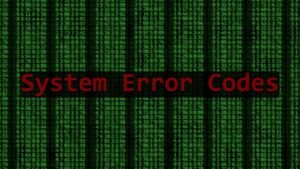
My experience with astrology consists of years of eye-rolling at horoscopes that axiomatically claim I’m a headstrong, assertive, domineering, natural leader who strives to be the center of attention. Recently, a friend did a birth chart reading for me.
“You’re a Leo, so you have a big personality,” she said.
I laughed at that.
“You do! It probably has yet to emerge. It also depends a lot on your environment.”
As she continued on about my supposed extroversion, I wondered which personality traits are innate and which are adaptations to my social and cultural surroundings. Being a woman of color in a white, conservative family and community tends to make one shrink.
In Ukraine, Afghans are stereotyped as uncivilized and belligerent — products of war. As a kid, I had my requisite moments of feistiness and anger, as all children do. On such occasions, my mom would tell me, “You’re just like your father and the rest of them: hateful and aggressive!” A cloud of alarm and bewilderment would cross her features.
Such moments were jarring. There was a double standard: As a child, my anger was viewed as more threatening than that of white children. It made me wonder if, despite my exclusively Ukrainian upbringing, my relatives were afraid that a fundamentally violent disposition — one supposedly inherent to Afghans — might still manifest in me like some kind of genetic disease. Terrorist blood.
From a young age, I was afraid of being overly expressive and of taking up space. I quickly learned to make myself smaller and quieter so that white people would feel comfortable.
In the third grade, I remember asking one of my friends about her first impression of me. She said, “I was surprised that there was a brown girl in the class. I was scared to talk to you at first because I wasn’t sure what you were going to do or how you’d behave.” After seeing my crestfallen expression, she quickly added, “But it’s okay, now you’re my friend!”
In an effort to appear as placid as possible, I spent the majority of my childhood as a timid pushover, unable to communicate my needs, set boundaries or say “no” without feeling saddled with immense guilt. In any friendship I had, I always took on the role of the follower, the loyal sidekick. I felt obliged to default to the wishes of my white friends in order to appear mellow and nonthreatening.
The pressure to tone down the louder, more vigorous aspects of my personality also influenced my speech and the way I communicate. My fear of being perceived as argumentative has led to a compulsive avoidance of any kind of disagreement. To this day, when faced with microaggressions, I’m reluctant to challenge them or speak up for myself.
On the other hand, some of my closest white friends have an impressive appetite for discourse, ready to pounce on any juicy, controversial topic of discussion. When I do find the nerve to argue, I tend to preface everything with “maybe” and tack qualifiers onto my statements to make them more palatable.
At UC Berkeley, I’ve found myself amid groups of white peers who speak so articulately and confidently that I hesitate to join the conversation. I feel as though I don’t have anything meaningful to contribute because, as a low-income immigrant, I wasn’t raised in a household where elegant jargon is casually lobbed back and forth across the dinner table.
During my second semester at UC Berkeley, I landed a position as a research apprentice in the English department. Working on the research project were a professor, a staff member and about 10 student apprentices. I was one of the only people of color on the team. This, paired with the fact that our research focused on documenting the careers and stories of the department’s first female faculty — all white — made me question whether I belonged on the project at all.
I was quiet at meetings and only spoke when called on. I was never able to smoothly insert myself into the conversation, so instead, I settled for listening silently as my white professor and peers spoke with more eloquence than I thought I was capable of.
Experiences like this have contributed to imposter syndrome: the feeling that I’m not intellectually up to par with my white friends. I’m often frustrated with myself for not being as agile a conversationalist as my peers while neglecting to take into account the additional linguistic and socioeconomic barriers that I face.
My time at UC Berkeley, however, has been instrumental in deconstructing my fear of speaking up and the feeling of inadequacy that accompanies it. Within communities I’ve been a part of throughout my time at UC Berkeley, I found what I was missing: other female-identifying BIPOC who are unafraid to take up space, to ask for what they need and to call out any racially charged microaggressions that inevitably pop up.
I am still growing into being unapologetic and comfortable with saying what I want to say. I remind myself that my voice is relevant. It may not be the loudest or most authoritative voice in the room, but that doesn’t mean that what I have to say isn’t important.
It has been healing to recognize that, given my background and experiences, taking up space and trying to be more assertive requires more emotional labor than it does for white people.
BIPOC are often stereotyped as loud, forceful and obnoxious, which causes some of us to cave inwards and silence ourselves.
But I am learning to judge myself by my own standards, taking into account the additional obstacles I must face in order to even have a seat at the table of an elitist, white-dominated academic institution such as UC Berkeley. I remind myself that strength and confidence don’t have to be loud. Though they’re not visible or apparent, the hurdles I’ve overcome and my resilience are what make me strong.
I am still far from embodying the lion-like flamboyance that my stars have prescribed for me. But I am content in knowing that I don’t need to.
Arina Stadnyk is a student at UC Berkeley. This article was originally published in the Daily Californian and is posted here with permission from Arina Stadnyk.
Like most of the pictures on TeensParentsTeachers, the picture posted with this article is courtesy of a free download from Pixabay.com.



